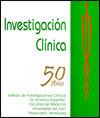在hiv -1合并感染的患者中,刚地弓形虫细胞因子产生的改变在早期就出现了。
IF 0.1
4区 医学
Q4 MEDICINE, RESEARCH & EXPERIMENTAL
引用次数: 0
摘要
HIV-1和刚地弓形虫都能侵入中枢神经系统并影响其功能。晚期HIV-1感染与弓形虫免疫应答缺陷有关,导致潜伏感染的重新激活和弓形虫脑炎的出现。本研究评估了HIV感染不同阶段对弓形虫免疫反应的变化。通过研究hiv -1感染/T细胞因子对寄生虫抗原的反应来评估对弓形虫的免疫反应。gondii-non-infected (P1), HIV-1/T。刚地共感染(P2), hiv -1非感染/T。gondii-non-infected (C1)和HIV-1-non-infected/T。刚地虫感染(C2)个体。根据外周血CD4+ T淋巴细胞计数(分别为>350或<350/μL)分为早期/无症状(P1A、P2A)和晚期/有症状(P1B/C、P2B/C)。当P2患者与C2对照组相比,从早期/无症状阶段开始的HIV-1感染与弓形虫反应中IL -2、TNF-α和IFN-γ的产生显著降低相关。这些早期缺陷可能会削弱合并感染患者的抗寄生虫反应,使寄生虫潜伏感染重新激活,增加中枢神经系统损伤和神经认知功能障碍的风险。本文章由计算机程序翻译,如有差异,请以英文原文为准。
Alteraciones en la producción de citocinas en respuesta a Toxoplasma gondii aparecen desde las etapas tempranas en pacientes co-infectados con VIH-1.
Both HIV-1 and Toxoplasma gondii are able to invade central nervous system and affect its functionality. Advanced HIV-1 infection has been associated with defects in immune response to T. gondii, leading to reactivation of latent infections and the appearing of toxoplasmic encephalitis. This study evaluated changes in the immune response to T. gondii in different stages of HIV infection. Immune response to T. gondii was assessed studying cytokine production in response to parasite antigens in HIV-1-infected/T. gondii-non-infected (P1), HIV-1/T. gondii co-infected (P2), HIV-1-non-infected/T. gondii-non-infected (C1) and HIV-1-non-infected/T. gondii-infected (C2) individuals. Patients (P1 and P2) were divided in early/asymptomatic (P1A, P2A) or late/symptomatic (P1B/C, P2B/C) according to peripheral blood CD4+ T lympho-cyte counts (>350 or <350/μL, respectively). The HIV-1 infection, from early/asymptomatic stages, was associated with significant lower production of IL -2, TNF-α and IFN-γ in response to T. gondii, when P2 patients were compared with C2 controls. These early defects may impair anti-parasitic response in co-infect-ed patients, allowing to reactivation of parasitic latent infection, enhancing the risk of CNS damage and impairment of neurocognitive functions.
求助全文
通过发布文献求助,成功后即可免费获取论文全文。
去求助
来源期刊

Investigacion clinica
MEDICINE, RESEARCH & EXPERIMENTAL-
CiteScore
0.20
自引率
50.00%
发文量
2
审稿时长
>12 weeks
期刊介绍:
Estudios humanos, animales y de laboratorio relacionados con la investigación clínica y asuntos conexos.
 求助内容:
求助内容: 应助结果提醒方式:
应助结果提醒方式:


